Airport security is a nuisance, but it’s one travelers must accept if they wish to be able to fly around the world safely. The best you can hope for is to get through security as quickly and painlessly as possible. That means being prepared and avoiding airport security mistakes that will slow you and everyone else down—or worse, get you into trouble with the TSA.
The following 10 suggestions for what not to do at airport security will make you a savvier flyer, capable of breezing through the checkpoint like a pro.
Don’t Bring More Than 3.4 Ounces (or 100 Milliliters) of Any Liquid
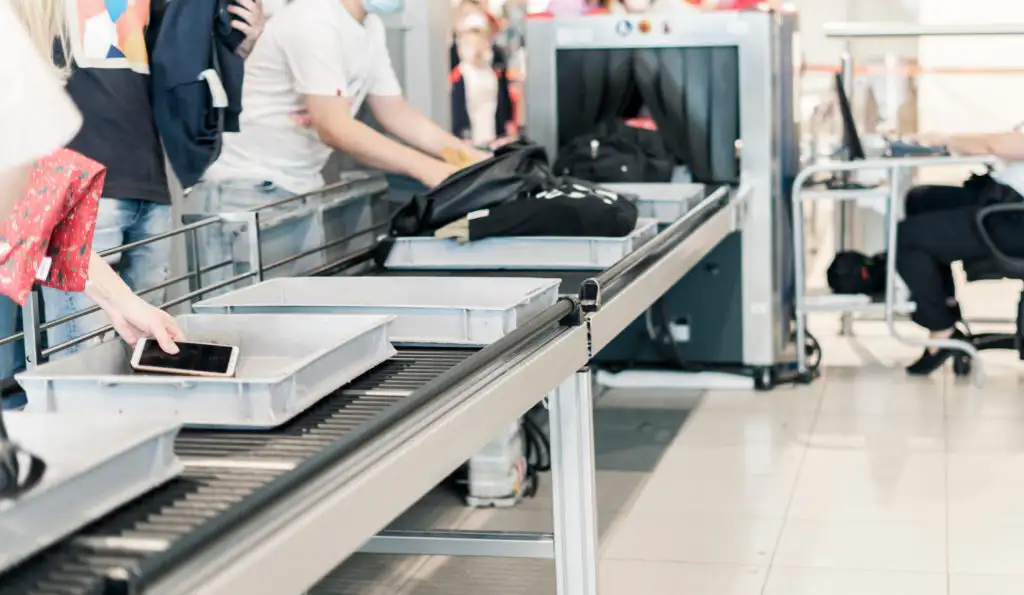
This may be obvious to frequent flyers, but even though the so-called 3-1-1 rule went into effect back in 2006, inexperienced travelers still show up with full-sized bottles of shampoo, water, and other liquids in their carry-on bags. Each time this happens, a TSA agent has to pull the bag off the security belt, call the passenger over, search the bag, scold the passenger, and throw the bottle out, thus slowing the security line down—and earning the offender annoyed head shakes from those stuck waiting.
There are a few exceptions to this rule, including medications, breast milk, and baby formula. If you’re flying to the United States via a connecting flight from overseas, you may carry full-size duty-free liquids as long as they’re sealed in a secure, tamper-evident bag by the original retailer, they were purchased within the past 24 hours, and you have the receipt.
For more information on what you can and can’t bring through airport security, check out this comprehensive Airport Security Q&A.
Don’t Leave Liquids and Gels Deep in Your Carry-On
One surefire method to slow a security line down is to waste time digging through your carry-on for items that need to be placed in the bin individually. Putting travel-sized liquids into a clear, see-through quart-sized bag is not enough. Keep the bag stored in a handy place—such as an external compartment on your carry-on—so all you have to do is reach in and grab it. Note that although electronics and liquids are increasingly allowed to remain inside carry-on luggage thanks to new technology, it may not be the case at every checkpoint.
Even TSA PreCheck members, who may be used to not having to take out their electronics and liquids, may be selected for a secondary screening and should be sure to keep these items easily accessible.
Don’t Forget to Have Your Boarding Pass and ID Handy
Similar to the above, you don’t want to be pulling out your wallet to grab your ID while you’re standing in front of the security agent. Do that while waiting in line or, better yet, before you even get in line. You’ll not only make things faster for yourself and those behind you, but you also won’t annoy the security agent.
Don’t Wait to Take off Your Belt, Watch, Jacket, and Shoes
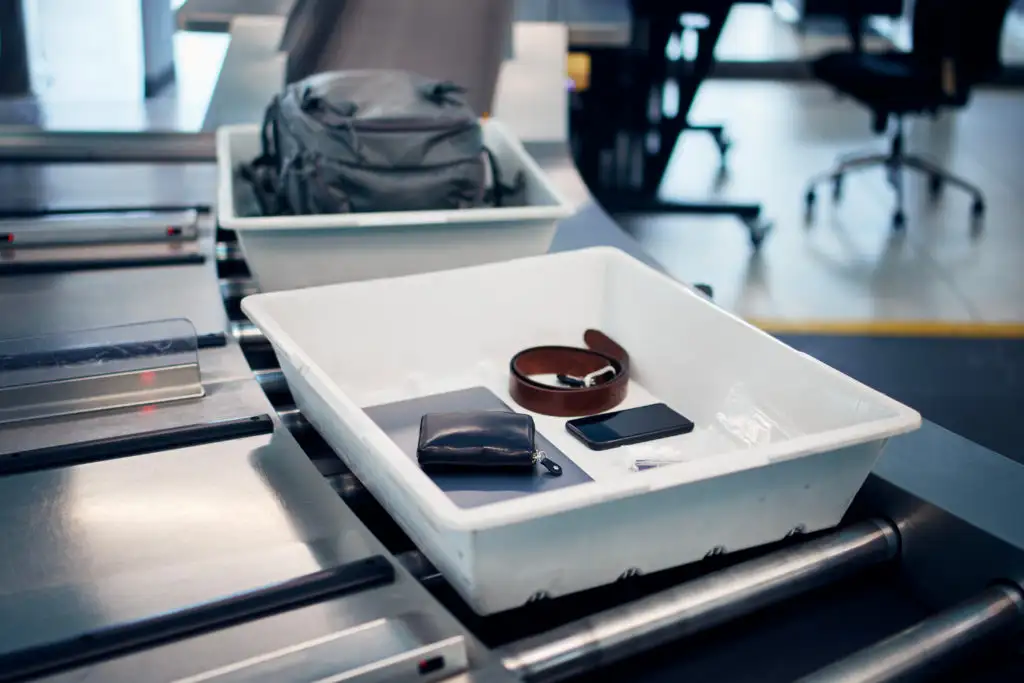

If you haven’t caught on to the “be prepared” mantra yet, here it is again. The best way to move through security as fast as possible is to have everything you need out and ready to be placed on the conveyor belt as soon as you get there. If you’re wearing a belt or watch, take it off while you’re in line. Same thing with your jacket and even your shoes if possible, especially if they’ve got shoelaces—at the very least, have your laces untied so all you have to do is slip your shoes off. Caveat: Seniors over the age of 75, kids under 13, and those who have TSA PreCheck may leave their shoes and light jackets on.
Don’t Remove Items You Don’t Need to Remove
One of the most common airport security mistakes is to take out all your electronic devices to be scanned separately. You don’t need to do this. According to the TSA, only electronics larger than a cell phone must be removed from their carrying cases and X-rayed separately. This does include laptops and tablets, but it doesn’t include phones or electric toothbrushes. TSA PreCheck members don’t have to remove electronics for separate screening.
Also, in most cases you do not need to remove your jewelry before going through security. If you’re wearing numerous or particularly bulky items, you might want to take them off, but smaller pieces such as wedding rings and earrings can usually stay on. If you set off any alarms, the screening agent will work with you to determine the problem, which might or might not require jewelry removal.
Don’t Wear Sandals
Do you really want to expose your bare feet to whatever’s on a filthy airport floor? Yes, sandals are easy to slip on and off, but they’re not worth a potential case of athlete’s foot if you have to take your shoes off for screening.
Don’t Overlook Less Busy Checkpoints
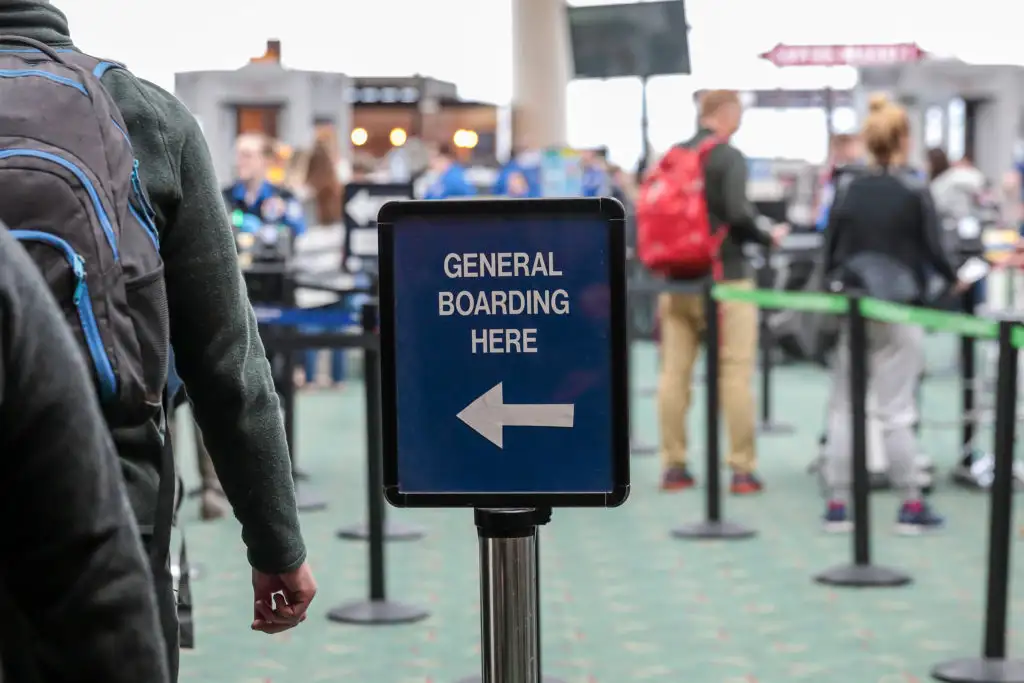

Most large airports have multiple checkpoint entries for any given terminal, and some may be busier than others at certain times of day. The TSA offers travelers an app called MyTSA that you can use to check security wait times based on historical data. Just be sure you actually can reach your gate via the checkpoint you’ve selected.
Don’t Give the Security Folks a Hard Time
You may think your trial shampoo bottle is smaller than 3.4 ounces, or maybe the last time you went through security, no one cared that your mascara wasn’t in a clear bag. All that matters is what they’re telling you this time. While the particular TSA agent demanding you give up your “contraband” very well may be in the wrong, at that moment he or she has all the power, and arguing isn’t going to get you anywhere but possibly detained.
Don’t Joke About National Security or Bombs
Technically, cracking jokes about national security at an airport is not illegal, but that doesn’t mean you can’t get in trouble for doing it. There are numerous cases of passengers being arrested after joking about explosives or bombs while being examined at security. You may think your joke is funny or harmless, but remember, the TSA has no sense of humor when it comes to doing its job. Always err on the side of caution.
Don’t Forget About the PreCheck Program
The TSA’s PreCheck program is a risk-based prescreening system that allows frequent flyers to apply for access to a restricted—and faster—airport security lane. The application process is essentially an in-depth background check, but once cleared, PreCheck flyers no longer have to remove their belts, shoes, or lightweight jackets, nor must they place their 3-1-1 compliant plastic bag and laptop in separate bins.
PreCheck lanes are currently available at more than 200 airports across the United States. Do you often travel internationally? Consider Global Entry, which includes PreCheck membership as well as expedited re-entry into the United States. Read SmarterTravel’s summary of Global Entry vs. TSA PreCheck to learn more.
Editor’s note: This story was originally published in 2017. It has been updated to reflect the most current information. Dori Saltzman contributed to this story.
You Might Also Like:
• The Ultimate Checklist for Traveling Abroad
• First Class for Free: How to Get an Airline Upgrade
• The 9 Best Weekender Bags for Short Trips
• Never Lose Your Luggage Again With This Easy Hack
• The US Airports With the Most TSA Complaints
We hand-pick everything we recommend and select items through testing and reviews. Some products are sent to us free of charge with no incentive to offer a favorable review. We offer our unbiased opinions and do not accept compensation to review products. All items are in stock and prices are accurate at the time of publication. If you buy something through our links, we may earn a commission.










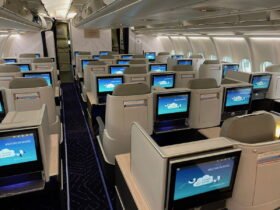
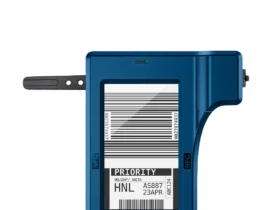

Leave a Reply